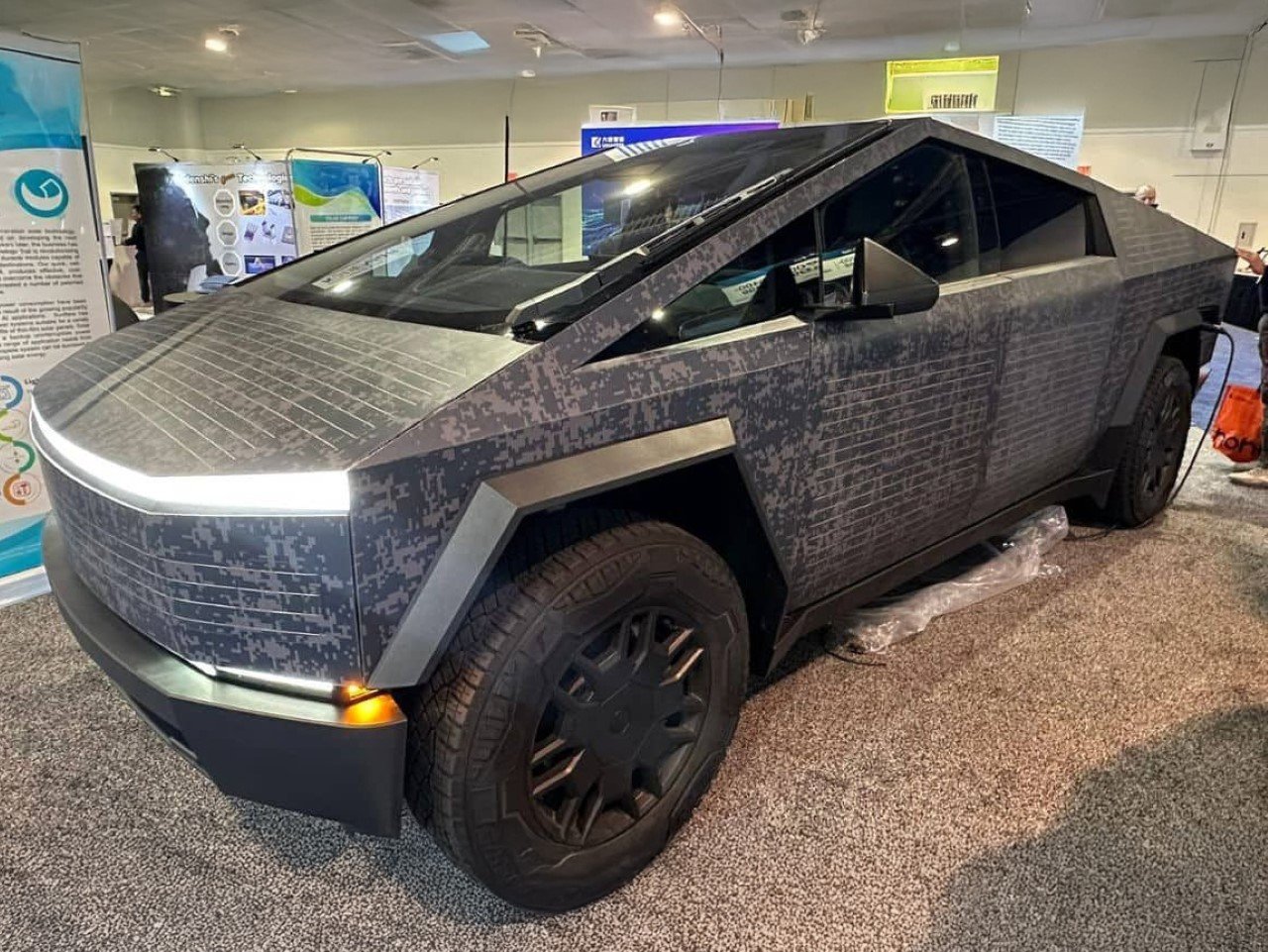The Tesla Cybertruck has always been a magnet for both innovation and intrigue, but the latest third-party modification takes its futuristic aura to another level—a $10,000 solar panel wrap that adds more range. While Tesla itself teased the idea of a solar-powered Cybertruck, this bold move by California-based Sunflare Solar gives the concept a tangible form. But the question lingers: is this ambitious wrap the leap forward it claims to be, or just an expensive novelty?
To understand the appeal, let’s revisit Tesla’s early flirtations with solar integration. Back in 2017, Elon Musk floated the idea of equipping the Model 3 with solar cells, though the technology then was deemed impractical. Fast forward a few years, and solar cell efficiency has improved significantly, with Tesla channeling its expertise into products like solar roof tiles. Musk reignited excitement in 2019 by announcing the Cybertruck would feature a solar roof capable of adding up to 15 miles of range daily. However, this feature never materialized (like a lot of Musk’s promises), leaving enthusiasts to wonder what could have been. Enter Sunflare Solar, which decided to fill that gap with its own cutting-edge solution.
Designer: Sunflare Solar
Showcased at CES 2025, Sunflare Solar’s flexible panels adhere seamlessly to the Cybertruck’s flat, angular surfaces, generating up to 1.5 kW of power. This translates into roughly the same 15-mile daily range Musk once envisioned for Tesla’s solar roof. The package includes a 5 kW battery inverter to channel that energy back into the truck, theoretically making off-grid adventures a bit more self-sustaining. On paper, the concept is undeniably cool—a rugged electric vehicle gaining autonomy with renewable energy. But let’s peel back the shiny layer and assess the trade-offs.
One of the Cybertruck’s hallmark features is its stainless steel exterior, celebrated for its durability and carefree resistance to scratches. The solar wrap, while innovative, swaps this resilience for fragility. Solar panels, even flexible ones, aren’t impervious to the rigors of outdoor wear and tear. Off-road trips, harsh weather, and everyday debris could all pose risks to these expensive cells, raising doubts about their long-term viability. Practicality becomes a sticking point when you consider the original ethos of the Cybertruck: an indestructible utility vehicle.
Moreover, the inherent limitations of car-mounted solar panels can’t be ignored. Despite advancements, the energy yield from panels covering a vehicle’s surface area remains modest. The 15 miles of extra range might be enticing for niche scenarios, like remote camping or commuting in sunny regions, but it’s far from game-changing. For most drivers, the added utility may not justify the hefty price tag—especially when home-based solar systems provide a far more efficient alternative.
And yet, there’s an undeniable allure to the concept. The visual impact of a Cybertruck cloaked in solar cells is enough to turn heads, and the idea of harnessing the sun’s power on the go taps into our collective fascination with sustainability and innovation. After all, it’s a lot better than a gold Cybertruck or one with Trump’s face painted on it.
This leaves us in a familiar place with Tesla and its ecosystem: balancing groundbreaking ideas with real-world usability. The Cybertruck itself is no stranger to polarizing opinions, and this solar wrap continues that tradition. Whether it’s a fleeting trend or a glimpse into the future, one thing is clear—it keeps the Cybertruck in the spotlight, sparking discussions that blend tech, design, and sustainability.
For now, the $10,000 question looms: is this the dawn of a new era for solar-powered vehicles, or just a shiny experiment destined for a niche audience? Time, and miles, will tell.
The post Tesla Cybertruck with a Solar Panel Wrap Gives it an Extra 15 Miles of Range first appeared on Yanko Design.

